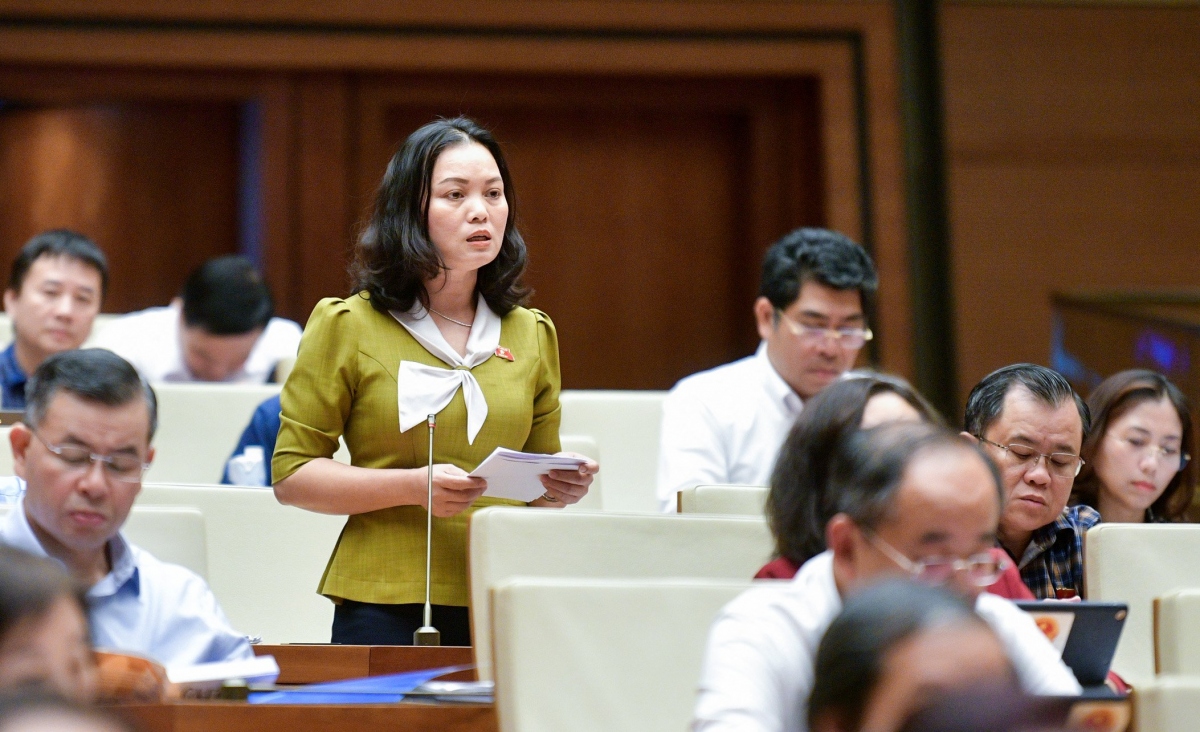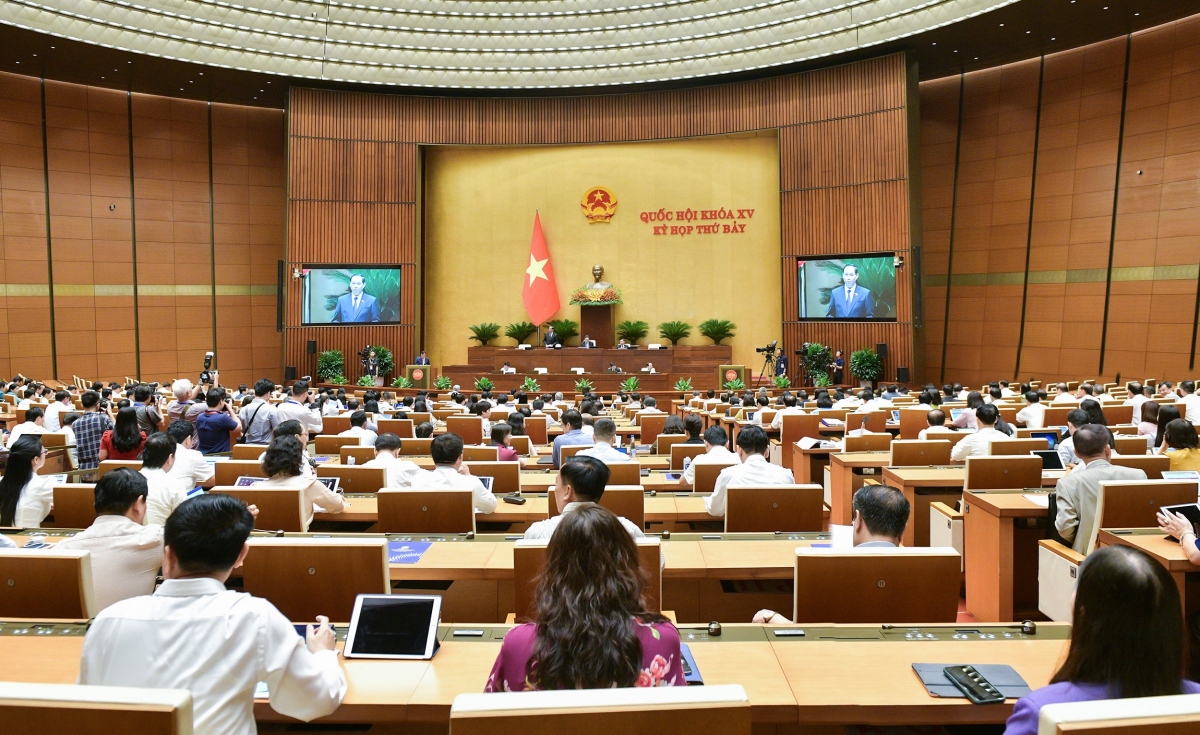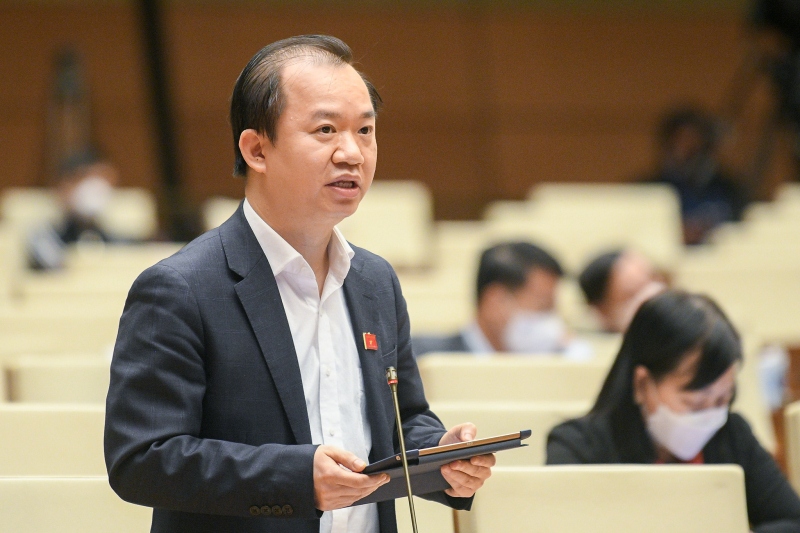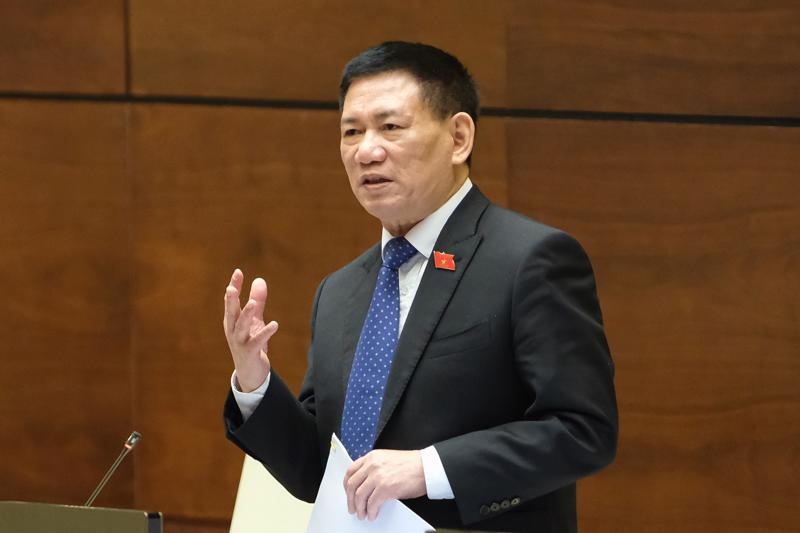High Ticket Prices Adversely Affect Aviation Industry Growth
During the National Assembly Hall discussions, Ms. Huynh Thi Phuc, a delegate from Ba Ria-Vung Tau province, pointed out the surge in domestic airfare in the first months of 2024. The increase ranges from 13% to 25% on average, although authorities claim that it remains within the regulated price frame as per Circular No. 34.

Ms. Huynh Thi Phuc, Ba Ria-Vung Tau province delegate.
“While this doesn’t violate any laws, a comparison with airfares of similar routes in neighboring countries reveals that our domestic flight prices are significantly higher. This has sparked questions about the reasons behind such a discrepancy, especially considering the affordability for the average Vietnamese citizen,” Ms. Phuc stated.
She further emphasized the challenge of surging ticket prices during peak travel seasons, such as holidays, summer vacations, or significant events. This issue is exacerbated by the frequent unavailability of tickets, despite the national carrier reporting losses. These concerns are evident in the feedback and data provided by voters.
Ms. Phuc also brought attention to the situation involving Con Dao district, where the suspension of flights by Bamboo Airways has resulted in a scarcity of tickets and a significant price hike. This has caused considerable difficulties for travelers to the area.
Given these challenges, Ms. Huynh Thi Phuc urged the Government and the Ministry of Transport to take a proactive approach and implement solutions. She suggested two key measures to address the issue:
Firstly, fostering transparent competition in air transport and aviation business operations. This will help reset ticket prices to their true market value and address concerns about potential monopolies or ticket hoarding, which lead to shortages and inflated prices during high-demand periods.

National Assembly discussions in the afternoon of May 23.
Secondly, attracting investment in aviation infrastructure and moving away from the sole reliance on the Vietnam Airports Corporation (ACV). This diversification will help minimize the overlap of taxes and fees on each ticket sold, which has contributed to the rise in prices over the past years.
Ms. Phuc recommended reconsidering the application of floor or ceiling prices for domestic airfares. She argued that persistently high ticket prices not only hinder the growth of the aviation industry but also negatively impact the broader economy, particularly the tourism sector. Lowering airfares would stimulate travel demand, benefiting not just tourism but also the overall socio-economic development of the country.
Lack of Collaboration Between Aviation and Tourism Industries
Mr. Bui Hoai Son, a delegate from Hanoi, weighed in on the issue of soaring airfares, suggesting that corrective measures are necessary. He highlighted the negative consequences of high ticket prices, including reduced travel demand and a decline in tourist numbers. This, in turn, affects the livelihoods of those working in the tourism industry, such as restaurants and hotels.
Mr. Son drew a comparison with Thailand, noting that equivalent routes in that country are significantly cheaper. He urged an investigation into the factors contributing to the high airfares in Vietnam, including both subjective and objective reasons.

NA deputy Bui Hoai Son – Standing Member of the Culture and Education Committee of the National Assembly suggested that there should be measures to adjust the airfare as it is negatively affecting the travel demand and reducing the number of tourists.
Among the causes, he identified a lack of competition, high maintenance costs overseas, and insufficient collaboration between the aviation and tourism industries. While there have been cooperative efforts, they tend to operate independently, without a mechanism for shared risk and reward. As a result, the high airfares have had a detrimental effect on tourism development and the socio-economic progress of localities.
To address this, Mr. Son proposed a support package for the aviation and tourism industries to reduce prices. This could include assistance with airport service fees and investment in aircraft maintenance centers in Vietnam.
“In the context of airfare issues, the tourism and aviation industries must work together. If the aviation industry only considers its gains from higher airfares without thinking about the negative impact on other sectors, it will be challenging. There is a connection between aviation, restaurants, hotels, and other aspects of tourism, and we must support each other to create tourism ‘combos,’ lower airfares, and benefit not just tourism but also the country’s socio-economic development,” Mr. Son emphasized.
Taxes and Fees in Airfares are not High
Responding to media inquiries about airfare-related matters, Minister of Finance Ho Duc Phoc asserted that taxes and fees within airfares are not excessive.

Minister of Finance Ho Duc Phoc.
According to Mr. Phoc, the proportion of taxes and fees in airfares is relatively low and has remained stable. Surveys indicate that the taxes and fees collected by airlines on behalf of the government account for 10-30% of the total airfare cost. This includes VAT, which is managed by the Ministry of Finance.
The remaining fees, such as airport and security screening fees, are collected by the Vietnam Airports Corporation (ACV), which manages and operates over 20 airports nationwide. The security screening fee is a fixed amount of VND 20,000 (including VAT) for adult passengers and VND 10,000 for children.
“From a tax perspective, the fees managed and collected by the State budget are minimal,” assured Minister Phoc. “We only collect VAT at 8-10% and corporate income tax from airlines. These amounts constitute a small portion of the airfare.”
The Minister of Finance emphasized that taxes and fees within airfares are not high. It’s important to distinguish between taxes and fees, as the latter refers to service charges like aircraft parking and airport usage, which are not government revenue. These charges are managed by the transportation sector.
Minister Phoc also shared that many countries are increasing taxes to strengthen their public finances and address challenges like an aging population and pandemics. In contrast, over the past four years, the Vietnamese government has implemented policies to exempt, reduce, and postpone taxes and fees totaling VND 200,000 billion annually to ease the burden on citizens.




![[Photo Essay]: Experts, Managers, and Businesses Unite to Forge a Path Towards Sustainable Green Industry](https://xe.today/wp-content/uploads/2025/07/z678592918-150x150.jpg)


![[Photo Essay]: Experts, Managers, and Businesses Unite to Forge a Path Towards Sustainable Green Industry](https://xe.today/wp-content/uploads/2025/07/z678592918-100x70.jpg)




